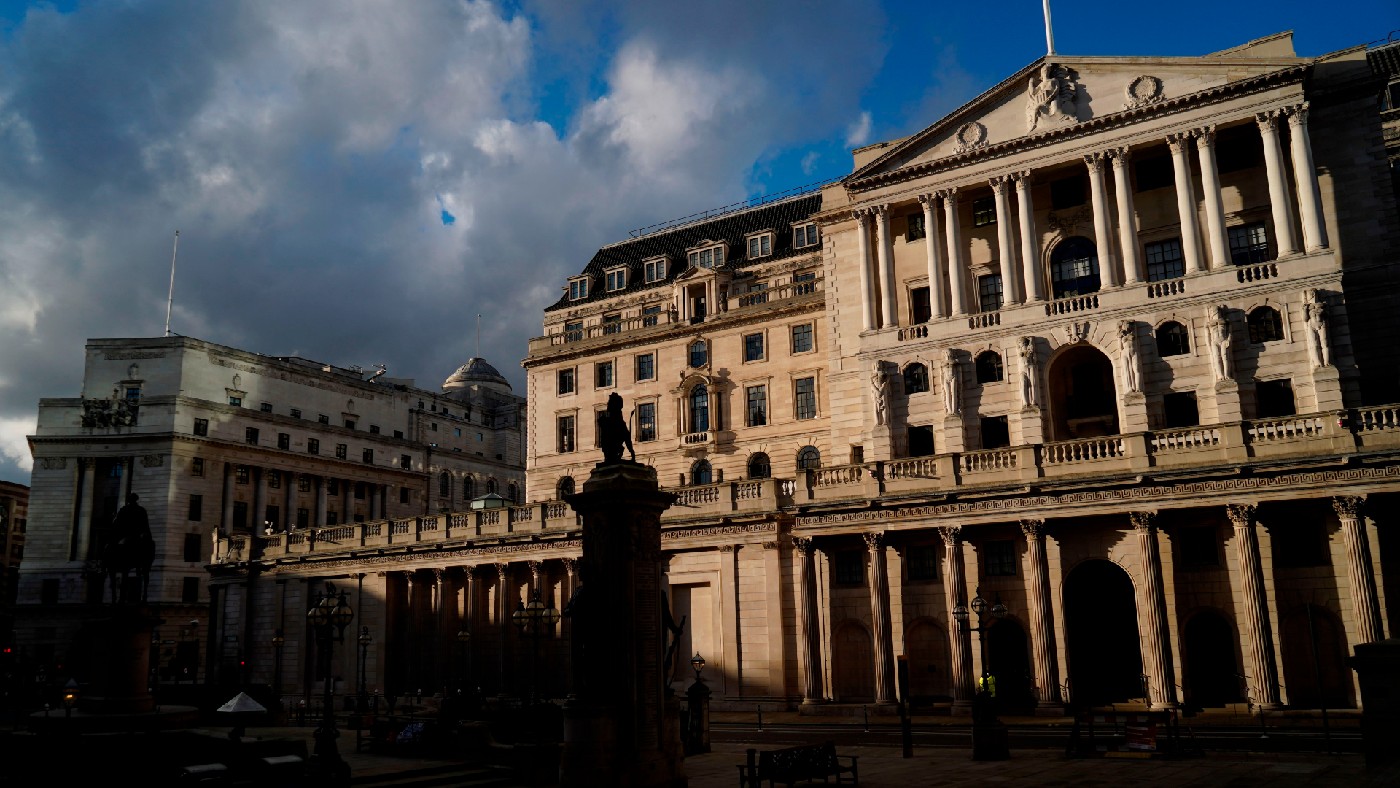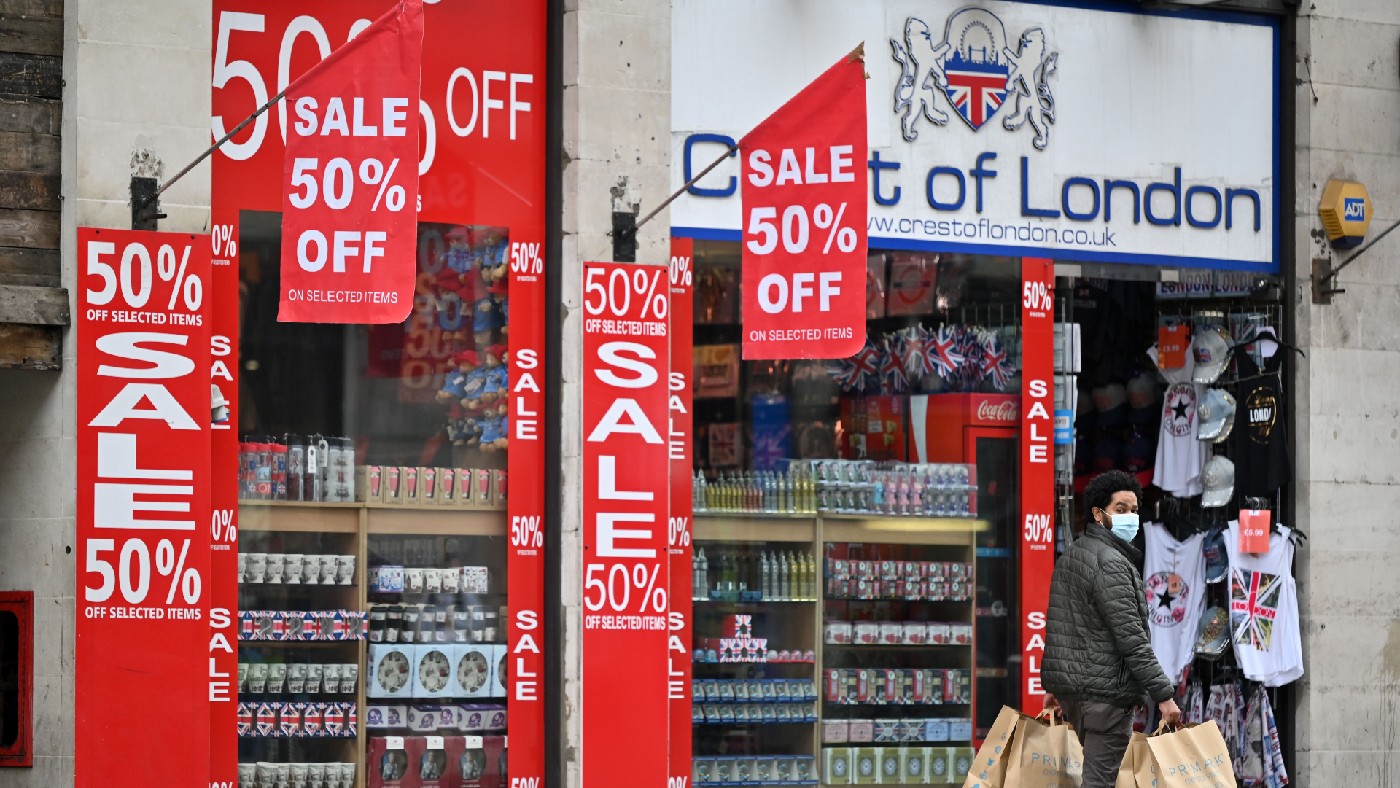The scourge of high inflation
Western economies haven’t faced rapidly rising inflation rates for decades. Is that about to change?

A free daily email with the biggest news stories of the day – and the best features from TheWeek.com
You are now subscribed
Your newsletter sign-up was successful
The numbers speak for themselves. Inflation – the general rate at which prices of goods and services in the economy are rising – has leapt substantially this year.
In the US, consumer price inflation hit 5.4% in June, the highest rate in more than a decade; the Bank of England expects the UK consumer price index to reach 4% by the end of the year – double its 2% target.
The big debate is whether this jump is down to the extraordinary hiatus caused by the pandemic and therefore, in the soothing term favoured by central bankers, it is “transitory”; or whether it presages something more “sticky” and problematic. Consensus still favours the first. But some economists think we may have reached a historic turning point: that the scourge of entrenched inflation is making a comeback.
The Week
Escape your echo chamber. Get the facts behind the news, plus analysis from multiple perspectives.

Sign up for The Week's Free Newsletters
From our morning news briefing to a weekly Good News Newsletter, get the best of The Week delivered directly to your inbox.
From our morning news briefing to a weekly Good News Newsletter, get the best of The Week delivered directly to your inbox.
What causes inflation?
It usually results from an increase in production costs such as raw materials or wages (known as “cost-push inflation”); or an increase in demand for products or services (“demand-pull inflation”). We’ve seen both in action during the pandemic.
A third big cause – officially lumped in the “demand-pull” bracket – is an increase in overall money supply: when central banks print more money, whether literally or via quantitative easing, or use other forms of stimulus; or when banks choose to lend more cash.
Psychology plays a part, too. Expectations of higher inflation are themselves inflationary, because they feed into a spiral in which demand is pushed up (buy now, before the price rises!) putting pressure on wages to rise to maintain living standards. That’s why inflation, once out of the bottle, is so difficult to tame.
A free daily email with the biggest news stories of the day – and the best features from TheWeek.com
What makes inflation so scary?
Out-of-control inflation eats away at purchasing power, erodes savings, and tends to affect the poor the worst. And when the catastrophe of “hyperinflation” (when prices rise at an annual rate of 1,000% or more) sets in, it can impoverish citizens and destroy economies.
However, even the double-digit inflation common in postwar Western nations posed a serious threat to economic health – particularly when it combined with stagnant growth to create a debilitating condition known as “stagflation”.
How was that situation tamed?
By a tough combination of high interest rates and monetarism – the practice of controlling the supply of money – which was championed most vigorously by the US economist Milton Friedman, and embraced by the Reagan and Thatcher governments of the early 1980s.

The heavy price paid was a deep recession. Friedman maintained, controversially, that “inflation is always and everywhere a monetary phenomenon”. That view, however, has fallen out of fashion.
Indeed, the taming of inflation in rich economies from the 1980s onwards is now more usually ascribed to price-lowering structural forces on the supply side – notably the impact of the technology revolution and globalisation, which led to a huge transfer of the production of goods from high-wage economies to territories like China and eastern Europe.
Are rising prices ever good news?
As former IMF chief economist Kenneth Rogoff points out, “a little inflation is no bad thing”: it’s the sign of a healthily growing economy, and encourages borrowing and spending – one reason why the Bank of England, in common with other central banks, sets a 2% target. This is considered a “sweet spot” because it’s enough to reduce the risk that an economic crisis could spark a deflationary spiral in which prices, wages and spending all fall.
Deflation is even harder than inflation to combat. Japan, which has been struggling with it for three decades, is a case in point. In fact, since the 2008 financial crisis, deflation has been the prevailing paradigm in rich countries globally; even trillions in stimulative quantitative easing, and super-low or negative interest rates have failed to shift it.
Many economists still believe that, despite the inflationary blip of the pandemic, this state of play might last decades.
Was the pandemic expected to be inflationary?
No. In the depths of the 2020 Covid slump, no one predicted the blistering pace of this year’s recovery. Even at the turn of the year, the Bank of England was still pondering the prospect of negative interest rates to stimulate the economy.
Yet after plummeting by almost 10% in 2020 (its biggest drop in more than 300 years), the UK economy is expected to grow by 7% this year. Inflation has hitched a lift on the ride.
Locked-down consumers, buoyed by government support and savings, splurged on durable goods such as clothes, cars and appliances, exacerbating the pressure on the disrupted global supply chain. The reopening has seen a storm of pent-up demand for services.
Bars, restaurants and hairdressers have raised prices to recoup closure losses and offset higher costs, while a dire shortage of workers has seen wages shoot up.

Is this just a temporary burst?
Probably, says the economist Kallum Pickering of Berenberg Bank. “However, the warning from history is clear: all periods of high sustained inflation appear temporary at first.”
Monetarists insist that quantitative easing’s great boost to the money supply is bound to tell: the amount of money in circulation (by the key M2 measure) has been growing in the US at an annualised rate of over 20% since February 2020, the fastest since the 1940s.
One question is whether the disinflationary forces of past decades are played out: globalisation is being rolled back, as Western economies reduce reliance on China; people in advanced economies are ageing, and may spend less.
Roger Bootle, the economist who declared “the Death of Inflation” 25 years ago, also warns that the aim of “net-zero” emissions will bring about “a whole series of costs and price increases”